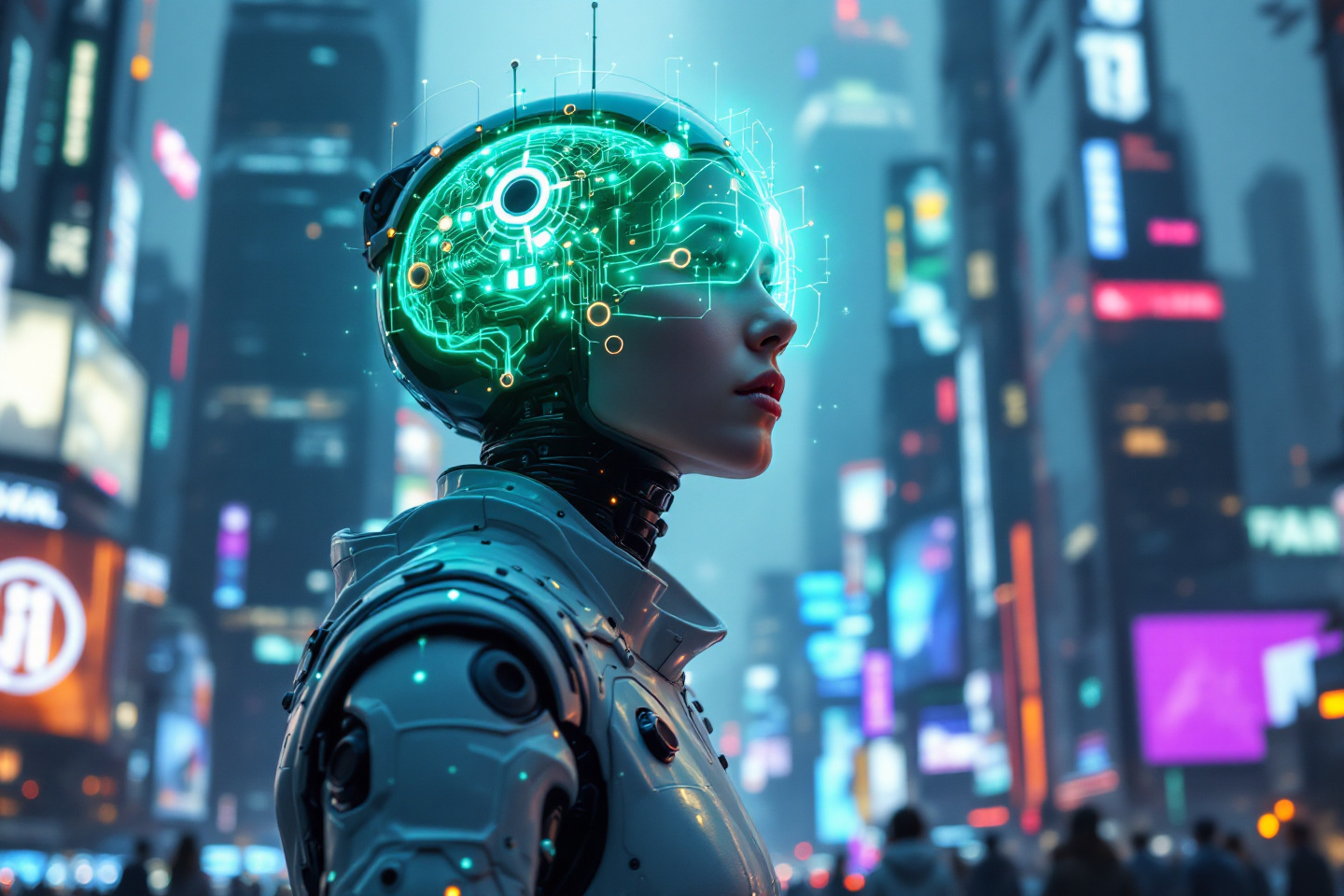Imagine waking up one morning to a world where artificial intelligence surpasses human intelligence, diseases are eliminated, and humans merge with machines. A world where technology doesn’t just assist us but integrates into every aspect of our existence, reshaping what it means to be human. This is not science fiction—it is a reality fast approaching.
The concept of The Singularity refers to a future moment when technological growth becomes uncontrollable and irreversible, leading to changes so profound that human civilization itself is transformed. This isn’t just about smarter computers or better smartphones—it’s about the fundamental restructuring of intelligence, biology, and society.
But what does this mean for us? Will we control the technology, or will it control us? Let’s dive into the mechanics of the Singularity, its implications, and what it means for the future of humanity.
“The future is not something that happens to us—it is something we create, one innovation at a time.”
A Journey Toward the Singularity
The evolution of intelligence has not been random—it has followed a pattern of distinct shifts, each dramatically changing the way information is processed and utilized.
- Matter Organizing Itself: The universe starts with raw elements, forming the basis of all future complexity.
- Biological Intelligence Emerges: Life forms develop self-replicating systems, leading to the rise of DNA and cellular life.
- The Birth of Brains: Nervous systems allow organisms to process information, adapt to surroundings, and make decisions.
- The Age of Tools and Technology: Humans use external devices to enhance their intelligence, from writing to computing.
- The Fusion of Human and Machine Intelligence: The era we are entering—where artificial intelligence extends and enhances human cognition.
- Beyond Human Limits: A future where intelligence saturates the universe, breaking free from biological constraints.
Each phase builds upon the previous one, accelerating change at an unprecedented pace. The Singularity is the next step—a leap into a future where intelligence itself becomes limitless.
“The mind is not bound by biology—it is bound only by what it has yet to imagine.”
The Acceleration of Technology
For most of history, technological progress was slow and incremental. But something changed in the last century—technology started advancing at an accelerating rate. Why?
- The Law of Accelerating Returns: Each new technological breakthrough builds on the previous one, reducing the time needed for the next innovation.
- Moore’s Law in Action: Computing power has been doubling every 18 months, making technology exponentially more powerful while becoming cheaper and smaller.
- Artificial Intelligence and Automation: Machines that learn, adapt, and improve themselves are pushing progress at speeds never before seen in history.
This exponential growth means that what seems impossible today may become reality in a few short decades.
“Change is compounding—tomorrow arrives before we expect it.”
Merging with Machines
For centuries, human evolution was dictated by biology. But now, we stand at the edge of a new kind of evolution—one driven by technology rather than natural selection.
- Human-AI Integration: Brain-computer interfaces could allow direct communication with machines, enhancing memory, intelligence, and creativity.
- Nanotechnology in the Body: Microscopic robots could repair cells, fight diseases, and extend human lifespan indefinitely.
- The Rise of Cyborgs: The merging of human biology with technology is already happening—prosthetic limbs controlled by thought, AI-powered implants, and digital enhancements to human cognition.
The question is no longer if this will happen but when—and how much of our humanity we are willing to integrate with machines.
“Nature no longer writes evolution—technology does.”
The Death of Aging and the Rise of Immortality
For centuries, aging and death have been seen as inevitable. But what if they were just technical problems waiting for a solution?
- Genetic Engineering and Regenerative Medicine: Scientists are unlocking the secrets of aging at the molecular level, finding ways to slow or even reverse it.
- Artificial Organs and Bioprinting: The ability to 3D-print human organs could eliminate the need for transplants.
- Mind Uploading and Digital Consciousness: Some predict that in the future, we may not need biological bodies at all—our minds could be transferred to digital platforms, achieving a form of immortality.
If death becomes optional, how will this change our purpose, our relationships, and our very identity?
“Aging is not a curse—it is a code, and all codes can be rewritten.”
Artificial Superintelligence
We are rapidly approaching the creation of artificial superintelligence—AI that surpasses human intellect in every possible way. But is this the key to a utopian future or the greatest threat we have ever faced?
- Self-Improving AI: Once AI reaches human-level intelligence, it will be able to redesign itself, rapidly surpassing us in ways we cannot predict.
- Automation of Everything: AI could take over nearly all jobs, from doctors to scientists, reshaping the economy and our place in it.
- Control or Chaos?: The challenge is not just building AI but ensuring it aligns with human values—failure to do so could lead to unintended consequences.
If intelligence is no longer a uniquely human trait, what role will we play in the future?
“When minds surpass their makers, intelligence must be redefined.”
The Ethical Dilemmas of the Singularity
With great power comes great responsibility. As we approach the Singularity, we must confront serious ethical questions:
- Who Controls the Technology? If intelligence becomes digital, who gets to own and regulate it?
- Economic Disruption and Inequality: If AI takes over most jobs, will wealth become concentrated in the hands of a few?
- Redefining Humanity: If we merge with machines, at what point do we stop being human?
Technology alone will not determine the future—it is the values we embed within it that will shape what kind of future we create.
“Progress without wisdom is just acceleration without direction.”
What Can We Do?
The Singularity is not just an event—it is a process we are already living through. How can we prepare?
- Learning: The most valuable skill in the future will not be knowledge, but adaptability.
- Ethical AI Development: Governments, researchers, and individuals must ensure AI serves humanity rather than threatens it.
- Rethinking Work and Purpose: If machines handle most labor, society must redefine the meaning of work, purpose, and fulfillment.
“The future belongs to those who shape it—waiting is not an option.”
Final Thoughts
The Singularity is not just about technology—it is about what it means to be human. As we stand on the edge of this transformation, we must ask ourselves:
Will we use this power to elevate humanity or risk losing what makes us human?
The future is not set in stone—it is a canvas, waiting for us to decide what to paint.
“Tomorrow is not written by fate, but by those bold enough to imagine it.”



